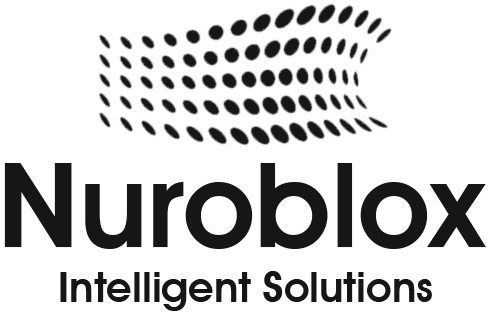Why AI Automation Is the Next Big Leap for Enterprises
As digital transformation accelerates, enterprises are reaching a tipping point where traditional automation is no longer enough. The next leap forward is AI automation, a powerful blend of artificial intelligence and intelligent workflows that goes beyond routine task execution to enable real-time decision-making, predictive insights, and adaptive operations.
AI automation empowers businesses to move faster, operate smarter, and deliver more personalized experiences at scale. Whether it’s streamlining customer service, optimizing supply chains, or enhancing financial operations, AI is becoming the backbone of modern enterprise strategy. In this blog, we’ll explore why AI automation is not just an upgrade but a game-changing shift for the future of business.
Why AI Automation Matters Now
The urgency for AI automation in enterprises has never been greater. As businesses face rising operational costs, shifting customer expectations, and increasing competition, traditional systems are struggling to keep up. AI automation offers a way forward, enabling organizations to do more with less, and to do it smarter.
1. Post-Pandemic Acceleration- The pandemic accelerated digital transformation across industries. Remote work, digital services, and supply chain disruptions highlighted the need for agile, intelligent systems. AI automation helps enterprises adapt quickly and maintain continuity.
2. Data Overload- Enterprises are generating more data than ever before. AI automation can process, analyze, and act on this data in real time, turning information into insights and insights into action.
3. Workforce Evolution- With talent shortages and the rise of hybrid work models, AI automation fills critical gaps by handling repetitive tasks and supporting employees with intelligent tools. It’s not about replacing people, it’s about empowering them.
4. Competitive Advantage- Early adopters of AI automation are already seeing gains in speed, accuracy, and customer satisfaction. In a fast-moving market, automation isn’t just an efficiency tool; it’s a strategic differentiator.
Key Areas Where AI Automation Is Making an Impact
AI automation is transforming how enterprises operate by streamlining workflows, enhancing decision-making, and improving customer experiences. Here are the key domains where its impact is most visible:
1. Customer Service and Support- AI-powered chatbots and virtual assistants handle thousands of customer queries simultaneously, offering instant responses and personalized support. Natural Language Processing (NLP) enables these systems to understand context and sentiment, improving customer satisfaction while reducing support costs.

2. Finance and Accounting- AI automates tasks like invoice processing, expense tracking, and fraud detection. Machine learning models analyze financial data to identify anomalies, predict cash flow trends, and ensure compliance, saving time and reducing human error.
3. Human Resources- From resume screening to employee engagement analysis, AI helps HR teams make faster, data-driven decisions. Automation tools streamline onboarding, training, and performance reviews, freeing up HR professionals to focus on strategic initiatives.
4. Supply Chain and Logistics- AI automation optimizes inventory management, demand forecasting, and delivery routing. Predictive analytics help enterprises anticipate disruptions and adjust operations proactively, improving efficiency and reducing costs.

5. IT Operations and Cybersecurity- AI monitors systems in real time, detects anomalies, and automates responses to potential threats. This proactive approach enhances security, reduces downtime, and ensures smoother IT operations.
6. Marketing and Sales- AI-driven tools personalize marketing campaigns, segment audiences, and predict customer behavior. Automation platforms manage lead scoring, email outreach, and performance tracking, boosting conversion rates and ROI.
AI automation is not just improving isolated tasks, it’s enabling a more agile, intelligent, and scalable enterprise ecosystem.
Benefits of AI Automation for Enterprises
AI automation is more than a technological upgrade; it’s a strategic enabler that delivers measurable value across the enterprise. Here are the key benefits:
Increased Operational Efficiency: AI automates repetitive and time-consuming tasks, allowing teams to focus on higher-value work. This leads to faster turnaround times, reduced manual errors, and streamlined workflows.
Cost Reduction: By minimizing human intervention in routine processes, AI automation helps cut labor costs, reduce overhead, and optimize resource allocation, resulting in significant financial savings.
Enhanced Decision-Making: AI systems analyze vast amounts of data in real time, providing actionable insights and predictive analytics. This empowers leaders to make smarter, faster, and more informed decisions.
Improved Customer Experience: AI-powered tools like chatbots and recommendation engines deliver personalized, 24/7 support. This boosts customer satisfaction, loyalty, and engagement.
Scalability and Flexibility: AI automation enables enterprises to scale operations without proportionally increasing headcount or infrastructure. It adapts to changing business needs and supports growth.
Future Outlook: What’s Next for AI Automation in Enterprises
AI automation is evolving rapidly, and its future in enterprise environments looks even more transformative. As technologies mature and adoption deepens, here’s what we can expect in the coming years:
1. Hyperautomation Becomes the Norm- Enterprises will move beyond isolated automation to hyperautomation, a strategy that combines AI, machine learning, robotic process automation (RPA), and analytics to automate end-to-end business processes across departments.
2. Rise of Autonomous Decision-Making- AI systems will increasingly make decisions without human intervention, especially in areas like supply chain optimization, financial forecasting, and IT incident response. These systems will learn from outcomes and continuously improve their accuracy.
3. Integration with Emerging Technologies- AI automation will converge with technologies like IoT, blockchain, and edge computing to create smarter, decentralized systems. For example, AI-powered sensors in manufacturing can trigger automated maintenance workflows in real time.
4. Personalized Enterprise Experiences- AI will enable highly personalized experiences for both customers and employees. From tailored product recommendations to adaptive learning platforms, automation will be driven by individual behavior and preferences.
5. Ethical and Responsible AI Governance- As AI becomes more embedded in decision-making, enterprises will invest in ethical AI frameworks, transparency, and bias mitigation to ensure responsible use and compliance with global regulations.
6. Democratization of AI Tools- Low-code and no-code platforms will make AI automation accessible to non-technical users, empowering teams across the organization to build and deploy intelligent workflows without deep programming knowledge.
7. AI-Augmented Workforce- Rather than replacing jobs, AI will increasingly augment human roles, providing intelligent support, automating routine tasks, and enabling employees to focus on strategic, creative, and interpersonal work.
AI automation is not just a trend, it’s the foundation of the next generation of enterprise innovation. Businesses that embrace it early and strategically will be better equipped to lead in a fast-changing digital economy.
Conclusion
AI automation is no longer a futuristic concept; it’s a present-day catalyst for enterprise transformation. By combining speed, intelligence, and adaptability, it empowers businesses to streamline operations, enhance decision-making, and deliver exceptional customer experiences. As the technology continues to evolve, enterprises that embrace AI automation today will be better equipped to lead, innovate, and thrive in tomorrow’s digital economy.


